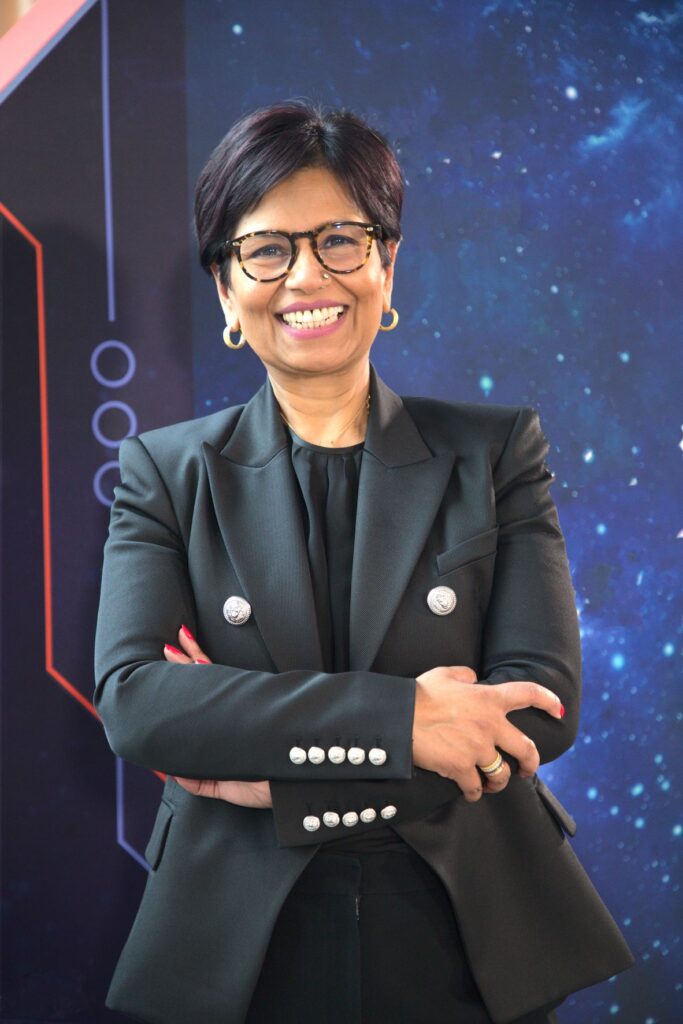
What’s driving AWS’s growing commitment to the Middle East market?
The Middle East is a region with an incredible vision. Governments here are highly supportive of innovation, the population is young and digitally fluent, and there’s a real sense of momentum across sectors.
We’ve been investing in the region since 2017, beginning with the Bahrain cloud region, expanding to the UAE, and now announcing our upcoming region in Saudi Arabia, scheduled to go live in 2026. But it’s not just about infrastructure. We’re building GenAI innovation centres, expanding our professional services capabilities, and forging deep partnerships with players like e&, stc, and HUMAIN to co-create meaningful impact.
What makes this market stand out is that organisations aren’t looking to replicate what’s been done elsewhere—they’re aiming to leapfrog. At AWS, we believe that bold visions require bold partners. That’s what we aim to be: a long-term, strategic partner capable of executing at scale.
With growing data localisation and sovereignty requirements, how does AWS maintain compliance without compromising on global scalability?
Security is at the heart of everything we do at AWS—we call it “Job Zero.” Our infrastructure is sovereign by design, meaning we embed compliance and data protection capabilities into every layer. This architecture enables us to meet stringent compliance, and data sovereignty requirements without compromising performance or scalability.
That said, we also recognise that certain countries—and even specific workloads—require an extra layer of sovereignty, whether due to regulatory mandates or sector-specific sensitivities. Therefor we work hand-in-hand with regulators and governments to build trust and alignment. A strong example is our recently announced UAE Sovereign Cloud Launchpad, developed in collaboration with e& Enterprise and endorsed by Dr. Mohammed Al Kuwaiti, Head of Cybersecurity for the UAE Government. This partnership combines e&’s deep domain expertise and security credentials with AWS’s sovereign-by-design infrastructure. Endorsement from the UAE Cybersecurity Council ensures that this setup can support highly regulated workloads with the confidence of full compliance and sovereignty.
What major shifts are you seeing in partner roles across the region?
There’s a remarkable hunger for learning and collaboration in this region. Whether it’s a startup founder or an established enterprise executive, everyone is eager to innovate and co-create. This spirit aligns perfectly with our partner strategy, which we call the “Power of three.” AWS brings core infrastructure and advanced solutions—whether it’s cloud, AI, machine learning, or new innovations like Amazon Bedrock and Amazon Q. But deploying these capabilities successfully requires ecosystem integration.
This is where implementation partners, system integrators and managed services providers play a crucial role. They help customers modernise. Alongside that, business consulting partners help align these technology shifts with strategic business outcomes—because ultimately, technology only matters when it solves real business problems. Add to that the role of ISVs which enhance and extend the value of cloud platforms through deep application capabilities.
Our focus is on orchestrating this entire collaborative ecosystem. It’s a strategy you can see in action through our partnerships in the region, and our close work with global and regional consultancies. The partner role today isn’t just about delivery—it’s about co-innovation, co-strategy, and helping customers realise outcomes faster. That’s the real shift, and it’s incredibly exciting to be part of it.
You’ve previously highlighted a “two-tier AI economy” where startups are outpacing large enterprises in AI adoption. What structural or cultural factors contribute to this divide, and how is AWS assisting larger organisations in closing this gap?
Our recent “Unlocking Ambitions” AI report shows that startups, being digitally native, tend to embed AI across their operations from day one—whether that’s in software development, product design, or customer experience. They’re agile, they iterate fast, and they aren’t held back by legacy infrastructure.
Enterprises, on the other hand, are typically starting with productivity-focused use cases—automation, operational efficiency, and reducing costs. That’s not a bad thing at all. In fact, it often unlocks budget and resources that can then be reinvested into innovation. The good news is that AI momentum is growing. In the Middle East, 28 percent of businesses have already adopted AI, and 50 percent are planning to.
At AWS, we’re accelerating that journey by providing the right tools, such as Amazon Q Developer, our GenAI Innovation Centres, and access to models via Amazon Bedrock. We also offer extensive training, professional services, and partner solutions to guide enterprises from exploration to scale. Organisations like First Abu Dhabi Bank and CAFU are already leading the way—using AWS to fast-track their AI ambitions and product roadmaps.
Whether it’s a startup, SME, large enterprise, or government institution, everyone is facing the urgent need to build AI and cloud fluency. That’s why AWS is strongly committed to upskilling—through inclusive programmes that empower girls, boys, and underrepresented groups to participate in the digital economy. The jobs of the future are digital, and it’s essential that no one is left behind.
Are there specific industries in the Middle East where the AI adoption gap is more noticeable? How is AWS tailoring its support accordingly?
Healthcare is one of the most exciting areas, and also one where AI adoption is just beginning to take off. The potential to use AI for drug discovery, predictive diagnostics, and personalised treatment is immense. We’re actively collaborating with healthcare providers and pharmaceutical companies to help them unlock these possibilities. At Amazon, we’re deeply invested in this space through our own ventures like Amazon One Medical and Amazon Pharmacy, and we’re bringing those learnings to the region.
Energy is another sector where AI has delivered tremendous advantages from optimising exploration and drilling operations to improving safety and enhancing customer interactions. We’re also seeing accelerated adoption in banking, government, and media. In fact, Middle Eastern airports and e-government services are among the most digitally advanced globally.
To support this industry-specific momentum, we’re aligning with sector priorities and building tailored solutions and programmes that reflect the unique needs of each vertical. Whether it’s regulatory compliance in healthcare or real-time analytics in media, we’re enabling customers to lead in their space.
Which AWS-powered project in the Middle East stands out to you?
One standout is our $5B+ partnership with HUMAIN in Saudi Arabia, aimed at accelerating AI adoption across government and commercial sectors. We’re bringing Amazon Bedrock, our AI chips, and tools like Q Business to help drive innovation and performance.
I’m also proud of our work with AI71 and the Technology Innovation Institute(TII) in the UAE. Their Falcon model, trained on Amazon SageMaker, is now globally available via the Bedrock marketplace—a true “Made in the UAE” success story.
Beyond tech, we’re committed to skills development. From training 150,000+ individuals to launching programmes for Emirati and Saudi women, we’re helping shape a more inclusive, AI-powered future.
What’s your advice to CIOs ready to scale GenAI beyond pilots?
The most successful GenAI transformations start with clear, top-down commitment. Leadership must set an ambitious vision—not just incremental improvements, but bold reinvention of customer experiences and core processes. At the same time, you need to empower builders—people who are eager to experiment, take risks, and challenge the status quo. That startup energy needs to be nurtured even within large enterprises.
Experimentation is also critical. Don’t wait for perfection—start with a department, a workflow, or a single use case. The technology is moving fast, and waiting too long may mean falling behind. Finally, choose bold partners who can grow with you.










Discussion about this post